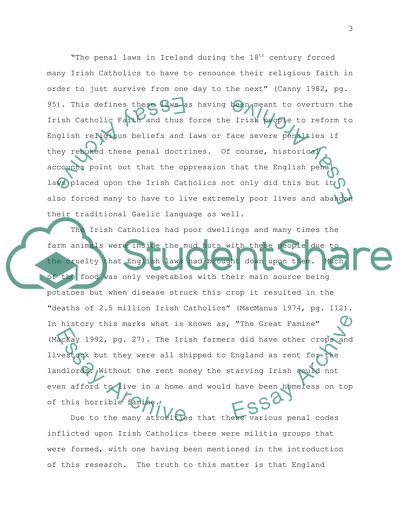Cite this document
(“Assess the Significance of Penal Laws in 18th Century Ireland Essay”, n.d.)
Retrieved from https://studentshare.org/miscellaneous/1503632-assess-the-significance-of-penal-laws-in-18th-century-ireland
Retrieved from https://studentshare.org/miscellaneous/1503632-assess-the-significance-of-penal-laws-in-18th-century-ireland
(Assess the Significance of Penal Laws in 18th Century Ireland Essay)
https://studentshare.org/miscellaneous/1503632-assess-the-significance-of-penal-laws-in-18th-century-ireland.
https://studentshare.org/miscellaneous/1503632-assess-the-significance-of-penal-laws-in-18th-century-ireland.
“Assess the Significance of Penal Laws in 18th Century Ireland Essay”, n.d. https://studentshare.org/miscellaneous/1503632-assess-the-significance-of-penal-laws-in-18th-century-ireland.


